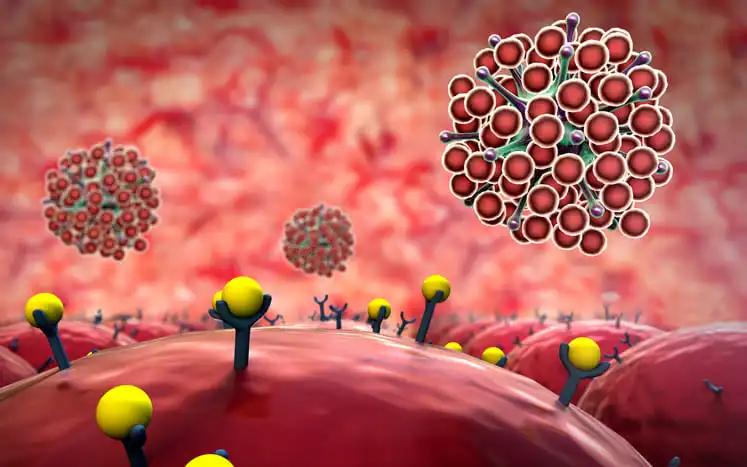KEY TAKEAWAYS
- The TROPION-Lung01 phase 3 trial aimed to evaluate Dato-DXd efficacy and safety in previously treated advanced NSCLC patients with non-squamous histology.
- The results showed Dato-DXd provided significant PFS benefit over docetaxel in NSQ NSCLC, with manageable safety; OS assessment ongoing.
The phase III TROPION-Lung01 trial (NCT04656652) investigated Datopotamab deruxtecan (Dato-DXd), a TROP2-directed antibody-drug conjugate, in previously treated advanced non small cell lung cancer (NSCLC) patients.
The study successfully met its dual primary endpoint of progression-free survival (PFS) in the intent-to-treat population, demonstrating a significant improvement compared to docetaxel (HR 0.75; 95% CI, 0.62-0.91; P= 0.004).
Although interim overall survival (OS) data were immature and not statistically significant, Dato-DXd showed favorable trends. The efficacy was predominantly observed in patients with non-squamous (NSQ) histology.
N. Girard and the team conducted a study that aimed to present the efficacy and safety outcomes observed in the NSQ subgroup of the TROPION-Lung01 trial.
Patients were randomly assigned in a 1:1 ratio to receive either Dato-DXd at a dose of 6 mg/kg or docetaxel at a dose of 75 mg/m2 every 3 weeks, with histology serving as a stratification factor. Prespecified subgroup analyses for progression-free survival (PFS) and OS based on histology were conducted, while safety analysis for the NSQ subgroup was performed post hoc. PFS and tumor response were evaluated according to RECIST 1.1 criteria by blinded independent central review (BICR).
Among the 299 patients randomized to Dato-DXd and 305 to docetaxel, 234 in each arm had NSQ histology. At the data cutoff (March 29, 2023), the median study follow-up was 12.9 months for Dato-DXd and 12.7 months for docetaxel. In the NSQ subgroup, Dato-DXd demonstrated improved PFS compared to docetaxel (HR [95% CI], 0.63 [0.51-0.79]); median 5.5 vs. 3.6 months.
Regarding safety in the NSQ subgroup, any grade treatment-related adverse events (TRAEs) occurred in 88% of patients in each treatment arm, with Grade ≥3 events in 22% treated with Dato-DXd and 41% treated with docetaxel. TRAEs associated with dose reduction occurred in 21% and 30% of patients, respectively. TRAEs led to discontinuation in 9% and 12% of patients, respectively.
The reported results from TROPION-Lung01 indicate that Dato-DXd exhibited a clinically significant improvement in PFS compared to docetaxel in patients with NSQ NSCLC. Additionally, the safety profile of Dato-DXd was deemed manageable. Assessment of OS is ongoing until final analysis.
The trial was sponsored by Daiichi Sankyo.
Source: https://rb.gy/6f6d1z
Clinical Trial: https://clinicaltrials.gov/study/NCT04656652
Girard N, Okamoto I, Lisberg AE, et al. (2024) “Datopotamab deruxtecan (Dato-DXd) in patients with previously treated advanced non-small cell lung cancer (NSCLC): Nonsquamous (NSQ) histology in the phase III TROPION-Lung01 trial.” Presented at ELCC 2024 Annals of Oncology (2024) 9 (suppl_3): 1-53. 10.1016/esmoop/esmoop102569 (59P).



